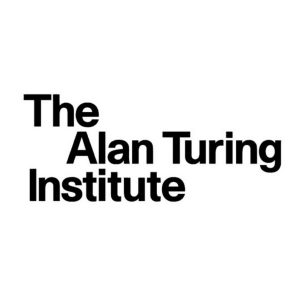 The Turing Way is a handbook to support students, their supervisors, funders and journal editors in ensuring that reproducible data science is “too easy not to do”. It will include training material on version control, analysis testing, and open and transparent communication with future users, and build on Turing Institute case studies and workshops. It is openly developed and any and all questions, comments and recommendations are welcome at the GitHub repository: https://github.com/alan-turing-institute/the-turing-way or in the gitter chat room: https://gitter.im/alan-turing-institute/the-turing-way
The Turing Way is a handbook to support students, their supervisors, funders and journal editors in ensuring that reproducible data science is “too easy not to do”. It will include training material on version control, analysis testing, and open and transparent communication with future users, and build on Turing Institute case studies and workshops. It is openly developed and any and all questions, comments and recommendations are welcome at the GitHub repository: https://github.com/alan-turing-institute/the-turing-way or in the gitter chat room: https://gitter.im/alan-turing-institute/the-turing-way
The Turing Way team are running a series of workshops for researchers, software engineers and others interested in reproducibility with some support for travel/childcare available on request
Boost your research reproducibility with Binder
If you are looking for an easy way to share your code with others, without worrying about the computational environment they’re running or installing a long list of requirements, then Binder might be the solution for you. Binder allows you to share your software with others in the form of a single clickable link, making it easier for users and removing the need for you to worry about supporting lots of different platforms.
During this free workshop The Turing Way team will discuss reproducible computing environments, show examples of others’ projects in myBinder.org and help you learn how to prepare a binder-ready project. At the end of the workshop you will be able to take some of your own content (in a R or Jupyter notebook, or scripts that can be run in the terminal) and prepare it so that it can be used by others on myBinder.org.
This workshop is for people who are:
- Interested in reproducibility, containers, Docker or continuous integration;
- Already familiar with R Markdown or Jupyter notebooks;
- Looking to communicate their research more effectively.
Workshop locations and sign-up
Build a BinderHub
Funders and publishers are beginning to require that publications include access to the underlying data and the analysis code. Researchers can be supported in doing this through myBinder.org which allows you to share your software with others in the form of a single clickable link, making it easier for users and removing the need for you to worry about supporting lots of different platforms. This is a huge step forward in terms of supporting reproducibility but the public Binder instance, myBinder.org, requires all code and data to be fully open, and computational power and data storage is limited. One solution to this is to host your own BinderHub locally, allowing you to control who has access to code and data and to provide greater computational power.
During this free workshop The Turing Way team will demonstrate how to build your own BinderHub on Microsoft Azure cloud computing resources. They will help you get started with building a BinderHub on your institution’s computing platform and discuss the challenges of maintaining a BinderHub. At the end of the workshop you will know why this would be a useful resource for your team, and will know where to look for help and support building your institution’s BinderHub.
This workshop is for Research Software Engineers and IT staff who are:
- Interested in reproducibility, containers, Docker or continuous integration;
- Already familiar with Binder and R Markdown or Python for data science;
- Interested in setting up their own local BinderHub.
Workshop location and sign-up
Read more on the Alan Turing Institute website

